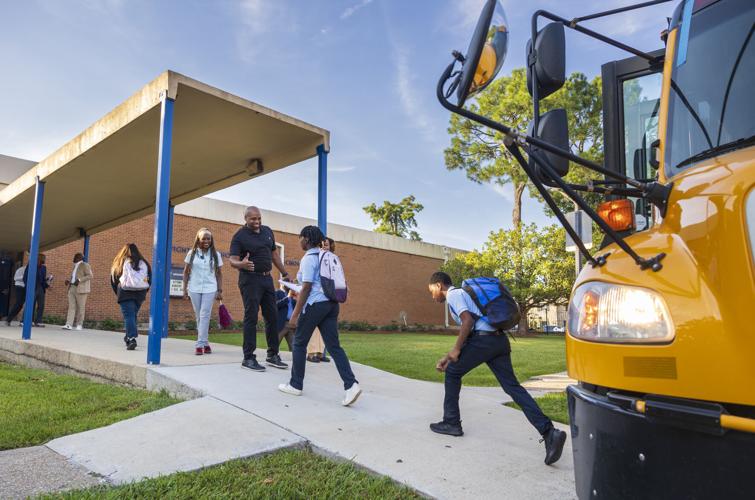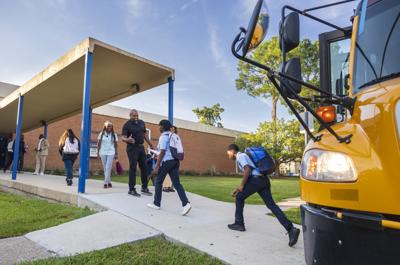New Orleans homeowners will have an extra month to pay their property tax bills next year after the Orleans Parish School Board, which collects more property taxes in the city than any other public agency, delayed a key decision that could send those bills higher.
City officials said Tuesday that property tax bills, which typically go out by the end of December, won't be sent out until the end of January. Payments normally due Jan. 31 will need to be paid by Feb. 29.
The reason for the delay lies with the School Board, which accounts for about a third of all citywide property tax levies.
Earlier this year, the City Council said that all of the 2024 property tax rates under its purview would be trimmed to avoid a windfall from a citywide property re-assessment that resulted in a sharp increase in home values. The council set the rates under its purview -- which are used for things like police and fire protection, drainage and general city services — at the same level as last year.
But the School Board is still considering "rolling forward" its millage rates, a legal step that would keep millage rates at last year's levels. That would increase the amount of property taxes homeowners pay, because of the rising property values.
If the rates were to stay at last year's levels, the board estimates it would generate $245 million in property tax revenue for the city's all-charter public school system, up about $30 million from last year.
The vote is scheduled for Jan. 18.
School officials say the vote has been stalled because they are still waiting on an answer from the state Department of Education on how a complex funding formula, based in part on the higher assessments, will affect its state funding.
An education department spokesperson said that information won't be available until early next month.
“Had the OPSB voted in the December meeting, they wouldn’t have had all the pieces to make the best decision,” said NOLA Public Schools Chief Financial Officer Stuart Gay. “It stinks that we couldn't do this sooner, but they need the info.”
Assessment controversy
The school board vote will follow six months of public outcry and political maneuvering stemming from Orleans Parish Assessor Erroll Williams’ quadrennial reassessment. By law, the assessor is required to determine the value of every property in the city every four years.
The latest effort, completed in November, increased overall property values by 18%. The prospect of higher taxes for homeowners and businesses comes as many are already struggling to keep up with inflation and massive increases in premiums for flood and homeowners insurance.

Olin G Parker, president of the Orleans Parish School Board, speaks during a press conference at ReNEW Schaumburg Elementary School in New Orleans, Monday, July 25, 2022. (Photo by Sophia Germer, NOLA.com, The Times-Picayune | The New Orleans Advocate)
After a new assessment, state law automatically “rolls back” millage rates to keep tax collections at the same level.
The owner of a home worth $300,000 paid about $3,200 in property taxes in 2023, assuming the owner held a homestead exemption and did not live in a special security district. An 18% increase in that home's assessment would translate to tax bill increase of about $730, if the rates were not rolled back.
The City Council, which has a final say in roughly over about $320 million in property taxes -- including for agencies like the Sewerage & Water Board -- held the rollback in place for the millages it controls and called on other taxing authorities to do the same.
But the School Board has been noncommittal, and it’s not clear how the vote next month will unfold.
School Board President Olin Parker said he is considering rolling forward one of six school millages, dedicated to employee pay. That would bring in an estimated $5 million in additional revenue.
Parker said that unlike other taxing bodies, a rollback for the School Board doesn’t really hold the school system's revenue at the same level, because state funding is tied to how much the school board is allowed to seek in property taxes -- not how much it actually seeks. He said 98% of the property tax revenue flows directly to more than 80 schools within the system.
The last quadrennial assessment increase resulted in a $10 million loss of state funding, Parker said.
“I think it is reasonable to assume that, given the challenges that our community is facing, especially the young people in our community, most voters in the city don't want to see an automatic $10 million cut to education,” Parker said.




